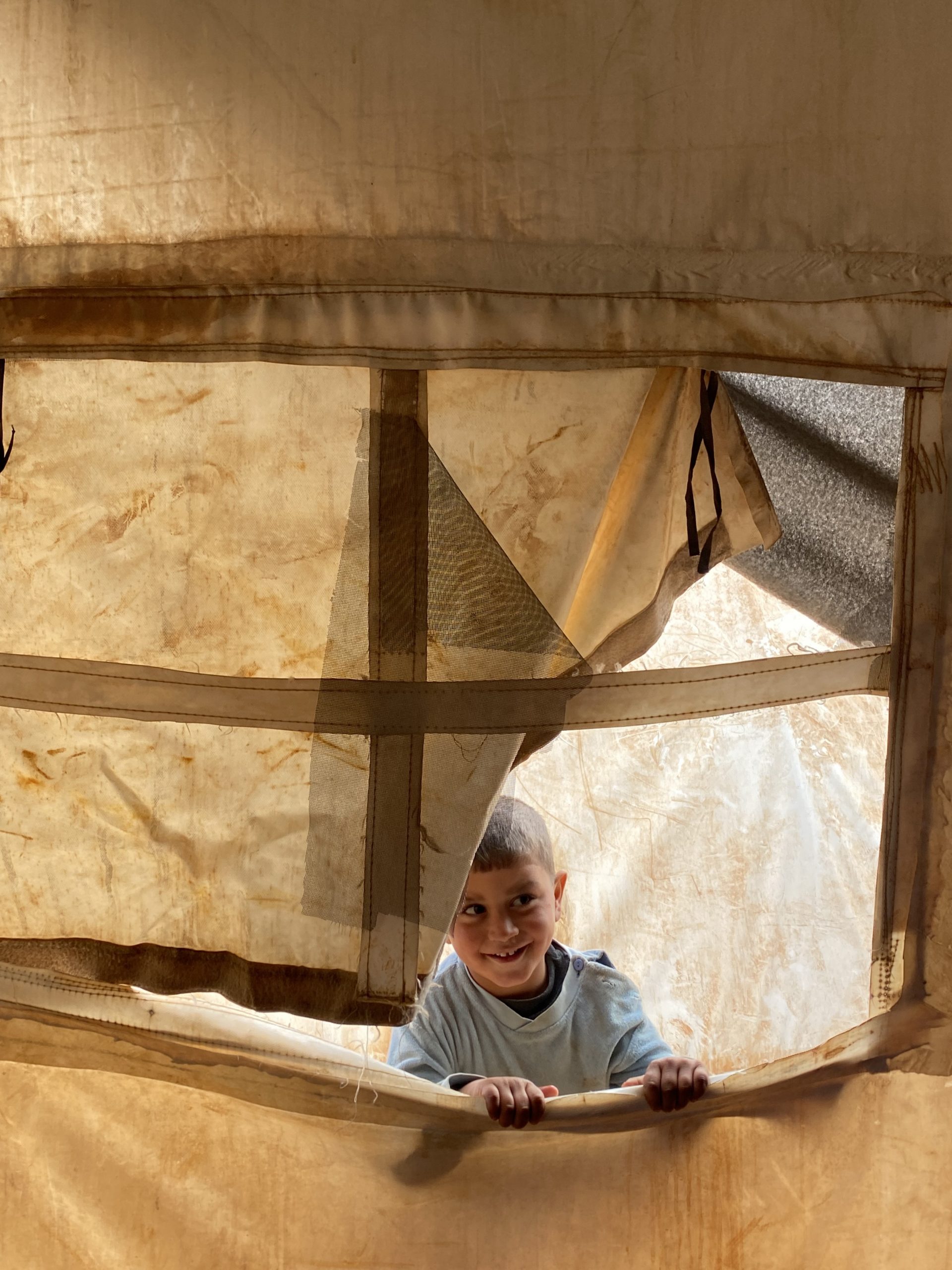When it comes to child neglect in Utah, it’s important to address the legal concerns and provide reassurance to those seeking assistance. Our goal is to create emotional connections with our readers and offer guidance in navigating this difficult topic. With a clear call-to-action, we encourage potential clients to reach out to the attorney listed on our website for more information. Through keyword research and optimization, we aim to make this article easily discoverable and provide valuable information for those in need. In this blog, we will delve into the nuances of child neglect in Utah, addressing common concerns and providing clarity on the legal aspects.
Definition of Child Neglect
Child neglect refers to a form of child maltreatment where a child’s basic needs and well-being are not adequately met by their caregivers or parents. It involves the failure to provide proper attention, care, and support, which can lead to significant harm and impair the child’s physical, emotional, and cognitive development. Neglect can take various forms, including physical neglect, emotional neglect, educational neglect, medical neglect, and supervisory neglect. It is essential to understand the different types of neglect and their potential indicators to ensure the safety and well-being of children.
Understanding the Concept of Child Neglect
Child neglect encompasses a range of actions or inactions that result in harm or risk of harm to a child. It is rooted in the parents’ or caregivers’ inability or unwillingness to meet a child’s basic needs, such as food, clothing, shelter, cleanliness, medical care, emotional support, and education. Neglect can occur due to various factors, including parental substance abuse, mental health issues, lack of knowledge or resources, or a dysfunctional family environment. Understanding the concept of child neglect helps in identifying and addressing cases effectively to protect children from further harm.

The Legal Definition of Child Neglect
Legally, child neglect is defined as the failure of a parent or caregiver to provide adequate care, supervision, or support needed for a child’s physical, emotional, or mental well-being. Each jurisdiction may have specific legal definitions and requirements regarding child neglect. In Utah, child neglect is defined under the Utah Code Annotated Section 76-5-109. It considers child neglect as a criminal offense when a parent or caregiver knowingly fails to maintain a safe and healthy environment for a child, resulting in physical harm, endangerment, or substantial risk of harm.
Types of Child Neglect
Child neglect can manifest in different forms, each with its distinct characteristics and indicators. Understanding these types of neglect is crucial for professionals and individuals involved in the welfare of children.
Physical Neglect
Physical neglect refers to the failure to provide an adequate physical environment for a child. This may include inadequate nutrition, insufficient clothing, lack of shelter, exposure to hazardous conditions, or inadequate hygiene practices. Physical signs of neglect can include malnutrition, poor personal hygiene, and inappropriate clothing for weather conditions.
Emotional Neglect
Emotional neglect involves the failure to meet a child’s emotional needs, such as love, affection, attention, and emotional support. It can include constant criticism, rejection, or indifference from caregivers, which can lead to emotional distress and hinder a child’s emotional development. Behavioral signs of emotional neglect may include withdrawal, low self-esteem, difficulty forming relationships, or aggressive behaviors.
Educational Neglect
Educational neglect occurs when a parent or caregiver fails to provide appropriate educational opportunities for a child. This can involve not enrolling the child in school or consistently allowing truancy, not providing necessary educational materials, or failing to support the child’s academic needs. Educational neglect can hinder a child’s intellectual development and limit their future opportunities.
Medical Neglect
Medical neglect refers to the failure to provide necessary medical care or treatment to a child. This can include not seeking medical attention for severe illnesses or injuries, not following through with prescribed treatments, or intentionally withholding medical care. Signs of medical neglect may include untreated illnesses or injuries, chronic health problems, or delayed growth and development.
Supervisory Neglect
Supervisory neglect is characterized by a lack of appropriate supervision and guidance for a child, leading to potential harm or dangerous situations. It can involve leaving young children unsupervised for extended periods, exposing them to hazardous environments or situations, or neglecting to protect them from harm. Warning signs of supervisory neglect may include injuries resulting from accidents or dangerous situations, repeated involvement in risky behaviors, or constant exposure to unsafe environments.
Signs and Indicators of Child Neglect
Recognizing the signs and indicators of child neglect is crucial for identifying cases and providing timely intervention to protect children from further harm. Neglect can have both physical and emotional indicators that should be carefully observed.
Physical Signs of Neglect
Physical signs may include poor physical hygiene, malnutrition, undernourishment, inadequate clothing, unaddressed medical conditions, or consistent exposure to dangerous environments. Physical neglect can manifest in visible signs such as unkempt appearance, chronic or untreated health issues, underdeveloped physical growth, or unattended injuries.
Behavioral Signs of Neglect
Behavioral indicators of neglect can vary depending on the age and developmental stage of the child. Neglected children may exhibit behaviors such as withdrawal, aggression, difficulty forming relationships, poor impulse control, truancy, lack of direction, poor academic performance, or engaging in risky behaviors. These behaviors may result from a lack of appropriate guidance, attention, or emotional support.
Emotional Signs of Neglect
Emotional neglect can leave lasting emotional scars on children. Signs of emotional neglect may include low self-esteem, lack of trust or attachment, constant seeking of attention, difficulty expressing emotions, anxiety, depression, or a sense of worthlessness. Neglected children may struggle with forming healthy relationships, regulating emotions, and developing a positive self-image.
Impact of Child Neglect on Children
Child neglect can have profound and long-lasting effects on a child’s overall well-being and development. The consequences of neglect can manifest in various areas of a child’s life, including physical health, behavioral and emotional functioning, cognitive abilities, and interpersonal relationships.
Physical Health Effects
Neglect can lead to significant physical health issues for children, including malnutrition, stunted growth, compromised immune system, chronic illnesses, and higher rates of accidents and injuries. The lack of proper nutrition, healthcare, and supervision can contribute to long-term health problems and impair a child’s physical development.
Behavioral and Emotional Effects
Children who experience neglect may exhibit a range of behavioral and emotional issues. These can include aggression, withdrawal, anxiety, depression, difficulty forming relationships, poor impulse control, low self-esteem, and behavioral problems at school or home. Neglect can hinder a child’s ability to form trust, regulate emotions, and develop healthy coping mechanisms.
Cognitive Effects
Child neglect can have detrimental effects on a child’s cognitive development. The lack of educational opportunities, intellectual stimulation, and consistent guidance can lead to academic difficulties, learning disabilities, developmental delays, and lower IQ scores. Neglected children may struggle with academic achievement and face challenges in reaching their full cognitive potential.
Interpersonal and Relationship Effects
Neglect can impact a child’s ability to form and maintain healthy interpersonal relationships. Children who have experienced neglect may face difficulties in trusting others, establishing secure attachments, and developing social skills. Neglect can affect their ability to navigate and engage in healthy relationships throughout their lives.

Risk Factors and Causes of Child Neglect
Several risk factors and causes contribute to the occurrence of child neglect. Identifying these factors helps in understanding the underlying causes and implementing targeted prevention and intervention strategies.
Parental Factors
Parental factors that can contribute to child neglect include substance abuse, mental health issues, inadequate parenting skills, history of abuse or neglect, domestic violence, poverty, social isolation, or stressors such as unemployment or marital problems. Parents or caregivers struggling with these factors may find it challenging to meet their child’s needs consistently.
Environmental Factors
Environmental factors, such as living in unsafe neighborhoods, lack of access to basic resources and services, inadequate housing conditions, or limited social support networks, can increase the likelihood of child neglect. Families facing socioeconomic challenges and residing in high-stress environments may face difficulties in providing a safe and nurturing environment for their children.
Legal Consequences of Child Neglect in Utah
Child neglect is a serious issue, and the State of Utah has specific legal consequences in place to address instances of neglect and protect the welfare of children.
Child Protective Services (CPS) Involvement
Child Protective Services (CPS) is an agency responsible for receiving and investigating reports of suspected child abuse or neglect. Upon receiving a report, CPS professionals conduct an assessment to determine the validity and severity of the allegations. If child neglect is substantiated, CPS can intervene and provide necessary services, such as family support, counseling, or removing the child from an unsafe environment.
Criminal Charges
In Utah, child neglect is not only a moral and social concern but also a criminal offense. If a parent or caregiver’s neglectful actions or inactions result in physical harm, endangerment, or substantial risk of harm to a child, they may face criminal charges. The severity of charges and potential penalties may vary based on the specific circumstances and the harm inflicted on the child.
Termination of Parental Rights
In severe cases where neglect poses a significant threat to a child’s safety and well-being, the court may terminate the parental rights of the neglectful parent or caregiver. Terminating parental rights permanently removes their legal rights and responsibilities towards the child, allowing for adoption or placement in foster care. The court considers this option as a last resort, prioritizing the child’s best interests and ensuring a safe and stable environment.

Reporting Child Neglect in Utah
Reporting child neglect is crucial for ensuring the safety and well-being of children who may be at risk. Anyone who suspects child neglect occurring in Utah has a legal and ethical responsibility to report it promptly.
Mandatory Reporting
In Utah, certain professionals, known as mandatory reporters, are legally obligated to report suspected child neglect. These professionals include teachers, medical professionals, social workers, law enforcement officers, and childcare providers. However, it is vital to remember that anyone who suspects child neglect can make a report, as it is everyone’s responsibility to protect vulnerable children.
Anonymity and Confidentiality
Utah law protects the identity of individuals who report suspected child neglect in good faith. Reports are often kept confidential, and the reporter’s identity is not disclosed without their consent. This confidentiality allows individuals to report concerns without fear of retaliation, ensuring the safety of both the child and the reporter.
Support Services for Reporters
Reporting child neglect can be a difficult decision, and individuals involved may need support throughout the process. Utah provides support services for reporters, such as access to counseling, referrals to appropriate agencies, and resources to aid in the reporting and investigation processes. These services aim to assist reporters in navigating the complexities of child neglect cases and ensure that their concerns are properly addressed.
Prevention and Intervention Strategies for Child Neglect
Preventing and intervening in cases of child neglect is crucial to protect children from harm and promote their overall well-being. Several strategies have been developed to address child neglect effectively.
Education and Awareness Programs
Raising public awareness about child neglect and its consequences is key to prevention. Educational programs, workshops, and community campaigns can provide information on recognizing and reporting neglect, parenting skills, stress management, and available resources for families in need. These programs aim to empower individuals with the knowledge to identify and address neglect effectively.
Parenting Classes and Support
Providing parents with the necessary skills and support to meet their children’s needs is essential in preventing neglect. Parenting classes can educate parents on child development, positive discipline techniques, stress management, and healthy communication. Support groups and counseling services can also offer emotional support and guidance to parents facing challenges and stressors.
Access to Mental Health Resources
Mental health plays a critical role in parenting and the well-being of children. Ensuring access to mental health resources, including counseling, therapy, and psychiatric services, can support parents in managing their own mental health issues and reducing the risk of neglect. Enhancing mental health services for both parents and children can contribute to better family outcomes and reduce instances of neglect.
Resources for Child Neglect Victims and Families
Providing support and resources for child neglect victims and their families is vital in helping them recover and rebuild their lives. In Utah, several organizations and services are available to assist those affected by child neglect.
Child Protective Services (CPS)
Child Protective Services (CPS) is the primary agency responsible for investigating child neglect reports, providing intervention services, and ensuring the safety and welfare of children. CPS professionals offer support to both the child and the family, conducting assessments, offering counseling and case management, and connecting families with community resources.
Local Support Organizations
Various local organizations specialize in providing support and resources to families affected by child neglect. These organizations may offer counseling, advocacy, emergency assistance, parent education, and referrals to other relevant services. Seeking the assistance of these organizations can help families navigate the challenges of recovery and access the support they need.
Legal Aid Services
Legal aid services can be essential for families involved in neglect cases, especially if the neglectful actions have legal consequences. Legal aid organizations provide legal advice, representation, and advocacy for families unable to afford private legal representation. They can help navigate the legal complexities, protect the rights of both the child and the parents, and ensure that appropriate legal measures are taken.
Frequently Asked Questions
What is the difference between neglect and abuse?
Child neglect and child abuse are both forms of child maltreatment but differ in their nature. Neglect is the failure to meet a child’s basic needs and provide necessary care, attention, and supervision. It can encompass various forms, such as physical neglect, emotional neglect, educational neglect, medical neglect, and supervisory neglect. Child abuse refers to intentionally causing harm or injury to a child, which can be physical, sexual, or emotional. While neglect results from inaction, abuse involves deliberate acts of harm.
What should I do if I suspect a child is being neglected?
If you suspect a child is being neglected, it is important to take immediate action to ensure their safety and well-being. You should make a report to your local child protective services (CPS) or the designated reporting agency in your jurisdiction. In Utah, you can contact the Utah Division of Child and Family Services at the Child Abuse/Neglect Hotline at 1-855-323-3237 to report your concerns. Provide as much detailed information as possible, including the child’s name, age, address, and any observed signs or indicators of neglect.
Can child neglect have long-term effects on a child’s development?
Yes, child neglect can have significant and long-lasting effects on a child’s development. Neglect can impact a child’s physical health, emotional well-being, cognitive abilities, and social relationships. It may result in delayed physical growth, poor academic performance, emotional difficulties, behavioral problems, and challenges in forming and maintaining healthy relationships. Timely intervention and appropriate support are essential to mitigate the long-term effects of neglect and promote the child’s recovery and development.


